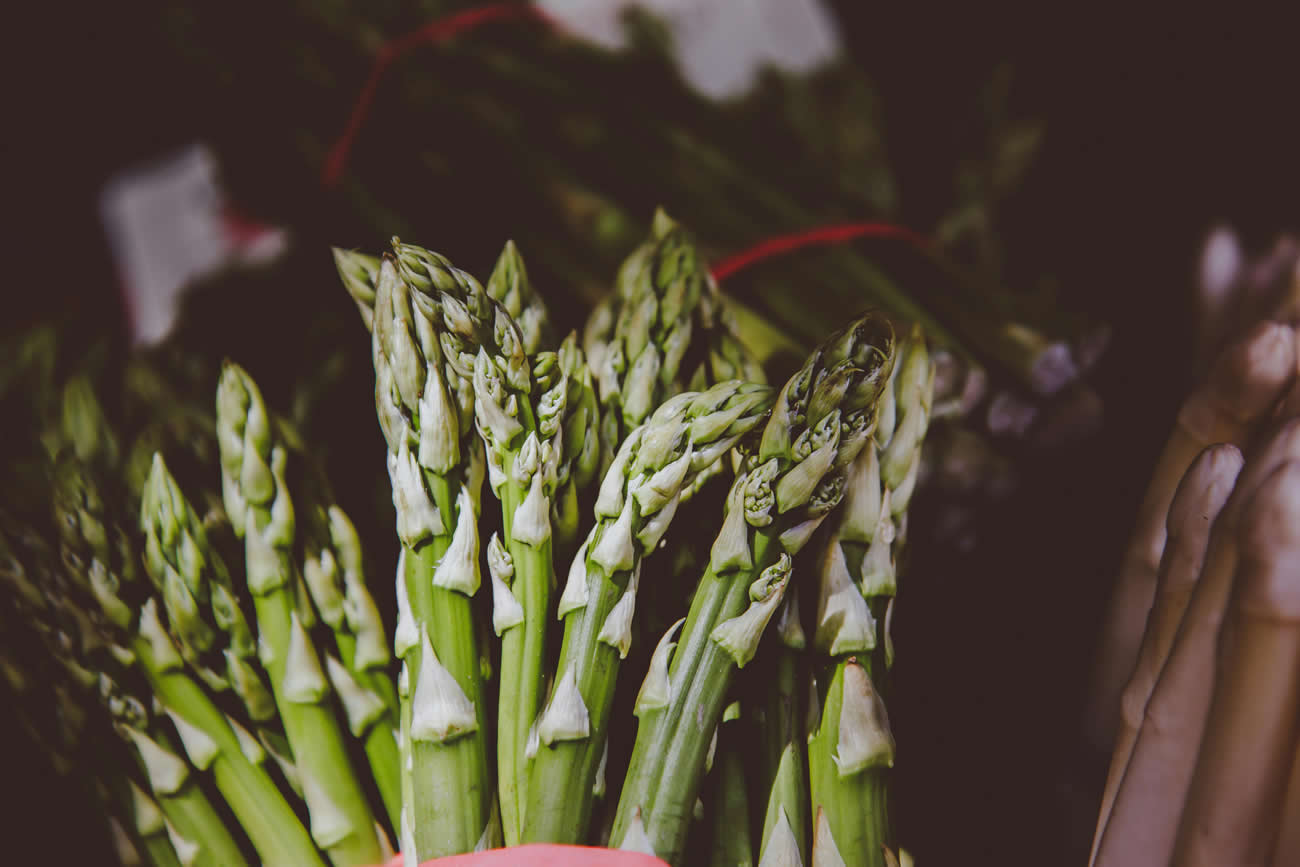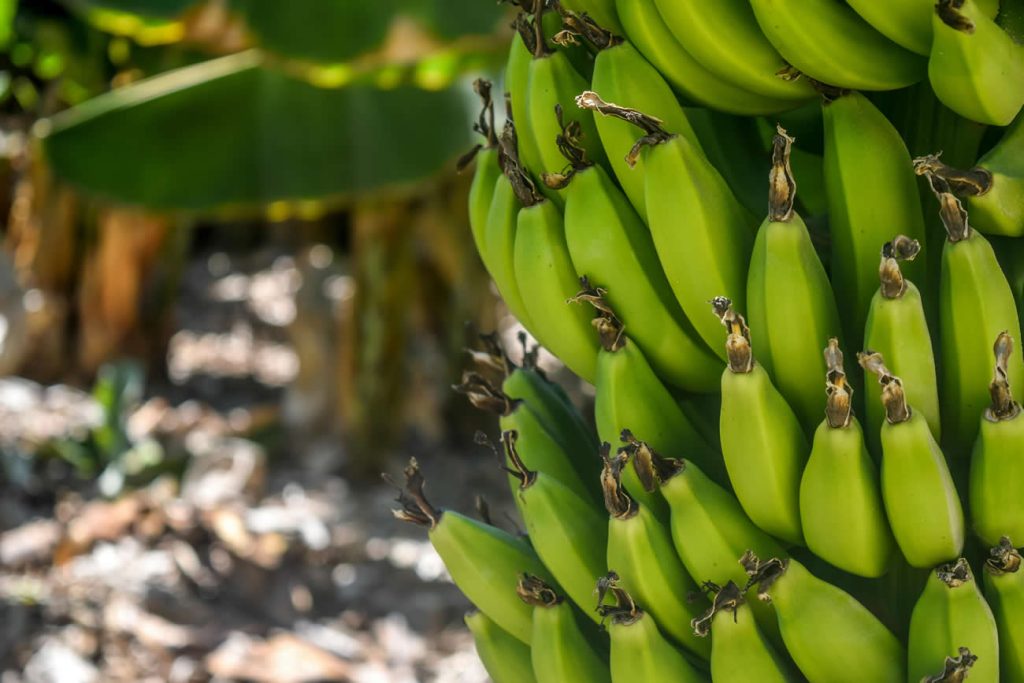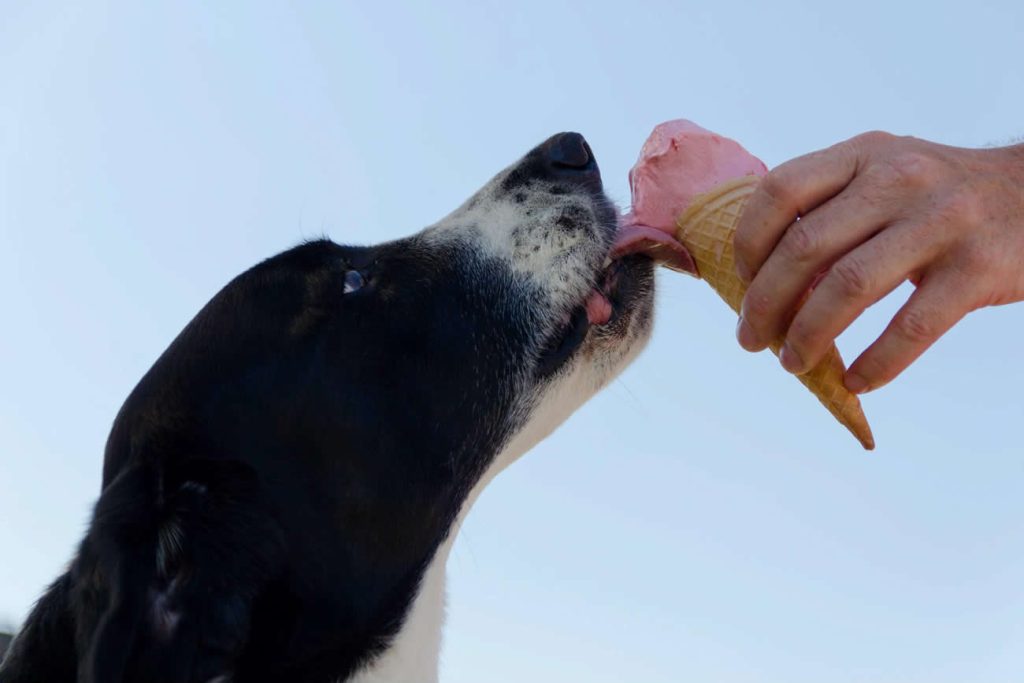Yes, dogs can eat asparagus. It is not toxic to dogs and actually contains many nutrients that can be beneficial for your dog’s health. Asparagus is a good source of vitamins A, C, and K, as well as fiber. It is also low in calories and fat.
Here are some of the benefits of feeding asparagus to your dog:
- Improved digestion: Asparagus is a good source of fiber, which can help to improve your dog’s digestion. Fiber helps to keep your dog’s digestive system healthy by adding bulk to stool and helping it to pass more easily.
- Reduced inflammation: Asparagus is a good source of antioxidants, which can help to reduce inflammation in your dog’s body. Inflammation can be a factor in many health problems, including arthritis, cancer, and heart disease.
- Boosted immune system: Asparagus is a good source of vitamins A and C, which are important for a healthy immune system. Vitamin A helps to protect your dog from infection, while vitamin C helps to boost their immune system and fight off disease.
- Healthy skin and coat: Asparagus is a good source of vitamin K, which is important for healthy skin and coat. Vitamin K helps to keep your dog’s skin and coat looking healthy by promoting cell growth and repair.
If you are considering feeding asparagus to your dog, it is important to do so in moderation. Asparagus is a safe food for dogs, but too much of any food can be harmful. Start by giving your dog a small amount of asparagus and see how they react. If they do not have any adverse reactions, you can gradually increase the amount of asparagus you give them.
It is also important to cook asparagus before giving it to your dog. Raw asparagus can be difficult for dogs to digest and may cause an upset stomach.
Can Dogs Eat Raw Asparagus?
Dogs can eat raw asparagus, but you should limit the amount they get. Asparagus contains a number of nutrients that are good for dogs, including vitamin A and folic acid. However, it also contains a compound called methanethiol that can cause gastrointestinal upset in some dogs.
The best way to prevent this is to cook your dog’s asparagus before feeding it to him. This reduces the amount of methanethiol in each serving and also makes the vegetable easier for your dog to digest.
If you choose to feed your dog raw asparagus, make sure you only give him small amounts at a time so that he doesn’t develop an upset stomach or diarrhea. Also be aware that some dogs may be sensitive to even cooked asparagus, so if your dog seems sick after eating it, stop giving him any more until you speak with your vet about what happened.
Can Dogs Eat Cooked Asparagus?
Cooked asparagus is safe for dogs to eat, but they may not like it. Let’s take a look at why dogs can eat cooked asparagus and how much is safe.
Can Dogs Eat Cooked Asparagus?
Asparagus is a vegetable that belongs to the lily family, which also includes onions and garlic. While these foods are safe for humans to eat, they can be dangerous for dogs. Asparagus contains an amino acid called asparagine that can cause gastrointestinal irritation in dogs when consumed in large quantities. The good news is that cooking reduces the amount of this compound found in asparagus, making it safer for consumption by dogs.
How Much Cooked Asparagus Can Dogs Eat?
The safest amount of cooked asparagus depends on the size of your dog and how much he normally eats per meal. A small dog shouldn’t have more than 1/4 cup (50 grams) of cooked asparagus per serving, while larger dogs can safely have up to 1/2 cup (100 grams). If you don’t know how much your dog usually eats, it’s best not to feed him any until you’re sure his tolerance level hasn’t been reached yet.
Can Dogs Eat Asparagus Stems?
Can dogs eat asparagus stems? The answer to this question depends on the type of stem you are talking about. There are two types of stems: edible and inedible. The edible stem is the one that you will find in supermarkets, restaurants and grocery stores. This is what humans eat, but it is not safe for dogs because it contains oxalates which can cause kidney failure if consumed in large quantities by dogs.
The inedible stem is called the basal plate or even more commonly referred to as the bottom end of an asparagus plant which is considered to be its root system. This part of the plant has no nutritional value, so it should not be fed to your dog unless instructed by your veterinarian.
If you suspect that your dog has eaten some asparagus stems or if you notice him having diarrhea after eating something new then contact your vet immediately.
Can Dogs Eat White Asparagus?
White asparagus is a delicacy that we humans enjoy, but it’s safe for dogs? Is white asparagus safe for dogs to eat?
What Is White Asparagus?
White asparagus is the same vegetable as regular green asparagus except it has been allowed to grow longer, up to 20 months, before harvest. The result is a more tender vegetable with a milder flavor than green asparagus. It has become popular in Europe since the 1990s and has since spread to the United States and Asia.
Is White Asparagus Safe For Dogs To Eat?
The ASPCA lists white asparagus on its list of foods that are OK for dogs (but not cats) to eat sparingly due to their high fiber content and low-calorie density. However, there is no scientific evidence that supports this claim or any other claims regarding whether or not white asparagus is safe for dogs to eat or not.
How Much Asparagus Can A Dog Eat?
Asparagus is safe for dogs to eat, but it is important to feed it to them in moderation. A good rule of thumb is to give your dog no more than 1/2 cup of cooked asparagus per day. Too much asparagus can cause gas, diarrhea, and other digestive problems.
Here are some tips for feeding asparagus to your dog:
- Cut the asparagus into small pieces so that your dog can easily eat it.
- Start by giving your dog a small amount of cooked asparagus and see how they react.
- If your dog does not have any adverse reactions, you can gradually increase the amount of cooked asparagus you give them.
- Asparagus should be an occasional treat, not a regular part of your dog’s diet.
When cooking asparagus for your dog, it is important to avoid adding any seasonings or oils, as these can be harmful to dogs. It is also important to avoid giving your dog the asparagus stalks, as these can be difficult for them to digest.
Asparagus is safe for dogs to eat, but it is important to feed it to them in moderation. A good rule of thumb is to give your dog no more than 1/2 cup of cooked asparagus per day. Too much asparagus can cause gas, diarrhea, and other digestive problems.
Here are some tips for feeding asparagus to your dog:
- Cut the asparagus into small pieces so that your dog can easily eat it.
- Start by giving your dog a small amount of cooked asparagus and see how they react.
- If your dog does not have any adverse reactions, you can gradually increase the amount of cooked asparagus you give them.
- Asparagus should be an occasional treat, not a regular part of your dog’s diet.
When cooking asparagus for your dog, it is important to avoid adding any seasonings or oils, as these can be harmful to dogs. It is also important to avoid giving your dog the asparagus stalks, as these can be difficult for them to digest.
If your dog has any adverse reactions to eating asparagus, such as vomiting, diarrhea, or gas, stop feeding it to them and consult with your veterinarian.
Can Dogs Eat Pickled Asparagus?
No, dogs should not eat pickled asparagus. The pickling process often uses ingredients that are toxic to dogs, such as garlic, onions, and chives. These ingredients can cause gastrointestinal upset, including vomiting, diarrhea, and abdominal pain. In severe cases, they can even lead to anemia or Heinz body anemia.
In addition to the potential toxicity of the pickling ingredients, pickled asparagus is also high in sodium, which can be harmful to dogs. Too much sodium can cause dehydration, lethargy, and increased thirst.
If your dog has eaten pickled asparagus, it is important to monitor them closely for any signs of illness. If they show any signs of gastrointestinal upset, such as vomiting, diarrhea, or abdominal pain, contact your veterinarian immediately.
As a general rule, it is best to avoid giving your dog any human foods that are not specifically designed for dogs. There are many foods that are safe for humans to eat but that can be harmful to dogs. It is always best to err on the side of caution and consult with your veterinarian before giving your dog any new food.
Can Dogs With Kidney Disease Eat Asparagus?
Asparagus is not toxic to dogs, but it is not recommended for dogs with kidney disease. Asparagus is high in phosphorus, which can be harmful to dogs with kidney disease. Phosphorus is a mineral that is important for the body, but it can build up in the blood when the kidneys are not working properly. This can lead to a number of health problems, including kidney stones, bone disease, and heart disease.
If your dog has kidney disease, it is important to feed them a diet that is low in phosphorus. There are many commercial dog foods that are specifically designed for dogs with kidney disease. These foods are low in phosphorus and high in other nutrients that are important for dogs with kidney disease, such as protein and omega-3 fatty acids.
If you are unsure about what to feed your dog, it is always best to consult with your veterinarian. They can help you create a diet that is tailored to your dog’s individual needs.
Here are some other foods that are safe for dogs with kidney disease:
- Lean meats, such as chicken, turkey, and fish
- Whole grains, such as brown rice and oatmeal
- Vegetables, such as carrots, broccoli, and spinach
- Fruits, such as bananas, apples, and berries
- Low-fat dairy products, such as yogurt and cheese
It is also important to avoid giving your dog foods that are high in phosphorus, sodium, and potassium. These minerals can be harmful to dogs with kidney disease.
Here are some foods that you should avoid giving your dog with kidney disease:
- Processed meats, such as hot dogs, sausages, and bacon
- Salty snacks, such as chips and pretzels
- Processed foods, such as canned dog food and dog treats
- Fruits and vegetables that are high in potassium, such as bananas, avocados, and spinach
- Dairy products that are high in phosphorus, such as milk and cheese
It is important to note that every dog is different, and what works for one dog may not work for another. If you are unsure about what to feed your dog, it is always best to consult with your veterinarian.
Can Diabetic Dogs Eat Asparagus?
Yes, asparagus is safe for diabetic dogs to eat. It is a low-calorie, low-sugar vegetable that is a good source of fiber. Fiber can help to regulate blood sugar levels, making it a good choice for diabetic dogs. Asparagus is also a good source of vitamins A, C, and K, which are all important for overall health.
Here are some tips for feeding asparagus to your diabetic dog:
- Cook the asparagus before feeding it to your dog. This will make it easier for your dog to digest and absorb the nutrients.
- Cut the asparagus into small pieces so that your dog can easily eat it.
- Start by giving your dog a small amount of asparagus and see how they react. If they do not have any adverse reactions, you can gradually increase the amount of asparagus you give them.
- Asparagus should be an occasional treat, not a regular part of your dog’s diet.
If you are concerned about feeding asparagus to your diabetic dog, you can always consult with your veterinarian. They can help you determine if asparagus is safe for your dog and how much you should feed them.
Here are some other foods that are safe for diabetic dogs:
- Lean meats, such as chicken, turkey, and fish
- Whole grains, such as brown rice and oatmeal
- Vegetables, such as carrots, broccoli, and spinach
- Fruits, such as bananas, apples, and berries
- Low-fat dairy products, such as yogurt and cheese
It is also important to avoid giving your dog foods that are high in sugar, fat, and carbohydrates. These foods can raise blood sugar levels and make it more difficult for your dog to manage their diabetes.
Here are some foods that you should avoid giving your dog with diabetes:
- Processed meats, such as hot dogs, sausages, and bacon
- Salty snacks, such as chips and pretzels
- Processed foods, such as canned dog food and dog treats
- Fruits and vegetables that are high in sugar, such as bananas, grapes, and watermelon
- Dairy products that are high in fat, such as milk and cheese
It is important to note that every dog is different, and what works for one dog may not work for another. If you are unsure about what to feed your dog, it is always best to consult with your veterinarian.
Can Dogs Eat Asparagus Beans?
Yes, dogs can eat asparagus beans. Asparagus beans, also known as yardlong beans or Chinese long beans, are a type of legume that is safe for dogs to eat. They are a good source of fiber, vitamins, and minerals, and can be a healthy addition to your dog’s diet.
Here are some of the benefits of feeding asparagus beans to your dog:
- Improved digestion: Asparagus beans are a good source of fiber, which can help to improve your dog’s digestion. Fiber helps to keep your dog’s digestive system healthy by adding bulk to stool and helping it to pass more easily.
- Reduced inflammation: Asparagus beans are a good source of antioxidants, which can help to reduce inflammation in your dog’s body. Inflammation can be a factor in many health problems, including arthritis, cancer, and heart disease.
- Boosted immune system: Asparagus beans are a good source of vitamins A and C, which are important for a healthy immune system. Vitamin A helps to protect your dog from infection, while vitamin C helps to boost their immune system and fight off disease.
- Healthy skin and coat: Asparagus beans are a good source of vitamin K, which is important for healthy skin and coat. Vitamin K helps to keep your dog’s skin and coat looking healthy by promoting cell growth and repair.
If you are considering feeding asparagus beans to your dog, it is important to do so in moderation. Asparagus beans are a safe food for dogs, but too much of any food can be harmful. Start by giving your dog a small amount of asparagus beans and see how they react. If they do not have any adverse reactions, you can gradually increase the amount of asparagus beans you give them.
Here are some tips for feeding asparagus beans to your dog:
- Cook the asparagus beans before feeding them to your dog. This will make it easier for your dog to digest and absorb the nutrients.
- Cut the asparagus beans into small pieces so that your dog can easily eat them.
- Start by giving your dog a small amount of asparagus beans and see how they react. If they do not have any adverse reactions, you can gradually increase the amount of asparagus beans you give them.
- Asparagus beans should be an occasional treat, not a regular part of your dog’s diet.
If you are concerned about feeding asparagus beans to your dog, you can always consult with your veterinarian. They can help you determine if asparagus beans are safe for your dog and how much you should feed them.
Overall, asparagus beans are a safe and healthy food for dogs to eat. However, it is important to feed it to them in moderation and to avoid giving them too much. If you are concerned about feeding asparagus beans to your dog, you can always consult with your veterinarian.









